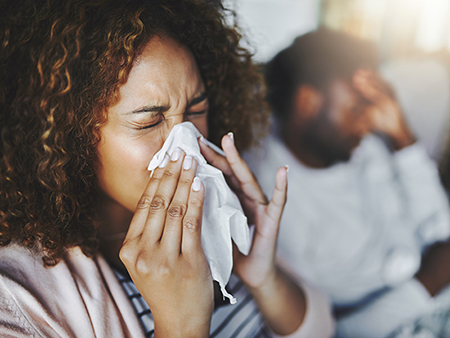by Nathan Anderson
Being outdoors is a great way to spend the day. However, you can expose yourself to allergens such as pollen, pet dander, mold spores and dust mites that can affect your vision.
“When an allergen makes contact with the white of the eye, it activates antibodies, just like in a viral or bacterial infection,” said Andrew Rothstein, OD. “Even though no infection is actually present, the body reacts as if there is, leading to inflammation. While eye allergies are typically a benign condition medically. The symptoms can be aggravating or even debilitating for allergy sufferers.”
The most common symptom of eye allergies is itching. Some patients may also experience redness, puffy eyelids and/or tearing. Over the counter (OTC) allergy eye drops and cool compresses help treat milder cases, but more severe cases often require treatment with prescription steroid eye drops.
When symptoms are not relieved by OTC eye drops or cool compresses, Rothstein recommends consulting an optometrist for additional assistance. Optometrists can prescribe treatments to help irritated eyes, especially if symptoms worsen.
“Eye pain, excessive discharge, and blurred vision are not typically symptoms of eye allergies,” Rothstein said. “Anyone experiencing these set of symptoms should make a call to their optometrist as soon as possible.”
Having eye allergies can also affect contact lens wearers, as it makes the contact lens less comfortable or even impossible to wear during peak allergy season.
“Unfortunately, there are no effective prevention methods for eye allergies,” Rothstein said. “Although, some seasonal allergy sufferers may start their eye drops treatments before their symptoms start.”
